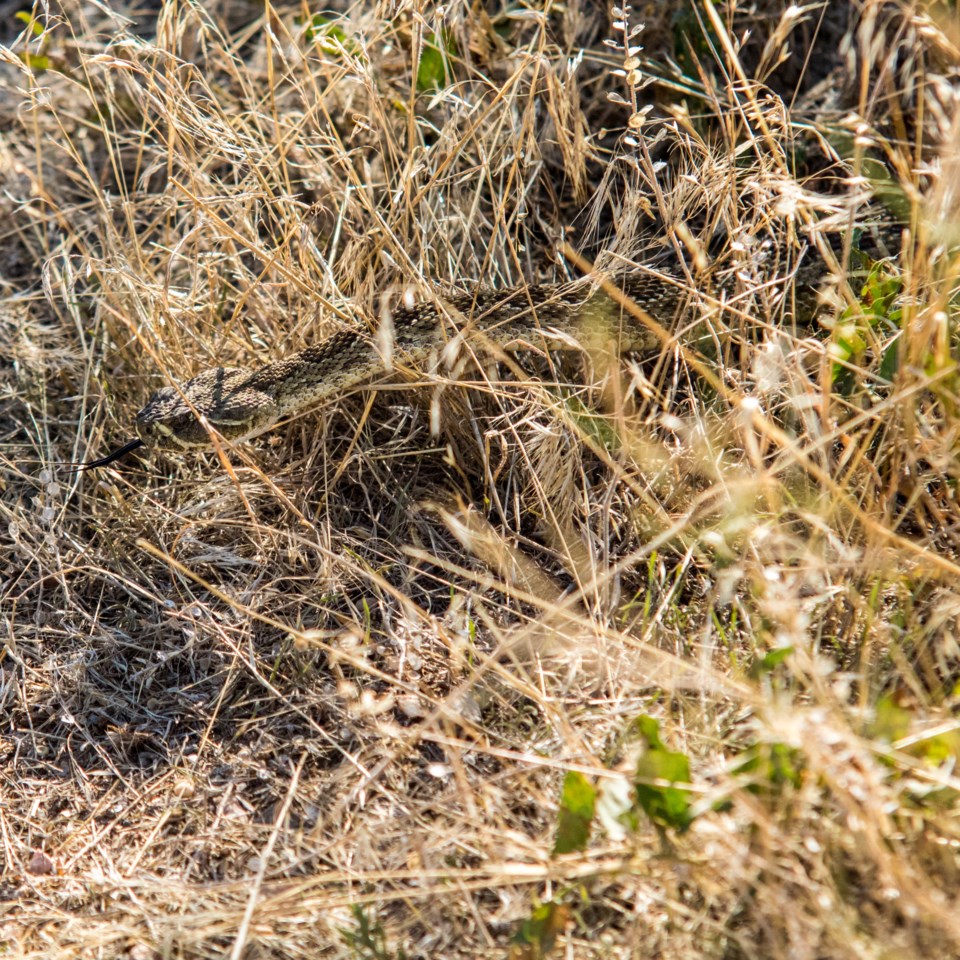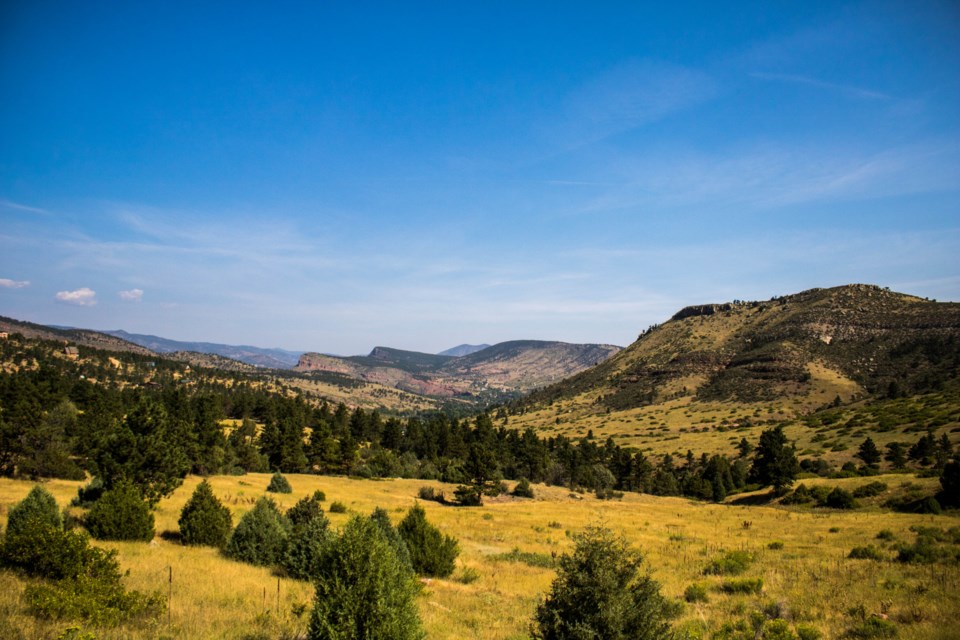Colorado is well-known for its outdoor splendor, with dozens of trails and campgrounds within an hour of Longmont and plenty of great hikes within Boulder County. It couldn’t be easier to drive out to a trailhead with some friends and take a nice hike through pine forests or up past the tree line to take in some spectacular views of the Rocky Mountains and Continental Divide. But are you geared up properly?
As with any sport, preparation and proper equipment are key. Sunburn, heat stroke and dehydration are great ways to ruin an otherwise gorgeous day, maybe even for a day or two after. Becoming a responsible hiker means being prepared for changing circumstances. In the summer, weather in the mountains can turn quickly if you don’t know how to read the signs, and lightning poses a hazard when hiking above the tree-line. Even a little planning can spare you from quite a bit of hardship.
The first place to start is with what you’ve got on your feet. Good footwear can save a lot of pain and trouble later on down the trail, making for a far more pleasurable experience.
Elliott Kroll, a hiker and Colorado resident, stressed the importance. “I can't count the number of blown out shoes and foot injuries I've had to deal with when people go hiking in regular workout attire. Trail runners, hiking socks, and boots were invented because glued-on soft foam soles of athletic shoes simply don't hold up on rocks and trails. Basketball shoes were built for a soft, flat polished wood floor. You will absolutely rip them apart trying to use them on rough terrain on angles.”
Keeping items in your regular hiking backpack can be handy. A headlamp, compass, first aid kit, a small knife or multi-tool, rain gear, garbage bags, and water purification tablets are all lightweight necessities for any hiker. Leaving them in your pack means you’re less likely to forget them when you’re planning to hit the trailhead. Never underestimate the value of a light source, because hiking in the dark can prove dangerous.
Denver-based author Mindy Sink, who recently published an updated version of 60 Hikes within 60 Miles of Denver and Boulder, has learned that one the hard way.
“During my research I made a few memories. One was starting a trail too late in the day and either ignoring the setting sun or believing I could hike faster than is possible so I ended up doing the last two miles in the dark. The moon isn’t as bright as you might think!”
Water and food are incredibly valuable as well. Foraging in the wilderness is frowned upon, and filling your water from streams can lead to illness without proper purification. A half liter per hour of activity is a good base according to REI’s experts, but it can’t hurt to err on the side of caution.
Hiking at elevation or in higher heat causes more exertion and stress on the body, meaning fluids need to be replenished more often. Support that with foods that are light and healthy, full of protein and complex carbohydrates, and you can stay more refreshed and feel less punished after a particularly long hike.
.jpg;w=960) Storms rolling in (Photo by Matt Maenpaa)
Storms rolling in (Photo by Matt Maenpaa)Weather is a fickle thing in Colorado. Summer dry spells and heat waves can produce intense conditions, while sudden lightning storms can cause wildfires to rage. The smoke and haze currently permeating much of the atmosphere of the Front Range can make breathing difficult and increase the risks while hiking. Up at elevation, in places like Brainard Lake Recreation Area, snows can remain on trail well into June and temperatures can differ as much as 30 to 40 degrees Fahrenheit from temperatures in Longmont. Being prepared with an extra layer of clothing and rain gear can make a major difference in how a hike progresses. Storms are more likely in the afternoon, so getting an early start to the day can help mitigate some of those risks.
 Rattlesnake on a Colorado trail (Photo by Matt Maenpaa)
Rattlesnake on a Colorado trail (Photo by Matt Maenpaa)An early start to the hike can also open up some opportunities to see wildlife, though they present hazards of their own. Rattlesnakes are prevalent in open trail areas like Heil Valley, Ron Stewart Preserve at Rabbit Mountain, Sandstone Ranch and more. They camouflage well and typically stay off well trod areas, but caution is always advised along with open ears and eyes.
Moose, elk, and deer can be dangerous when approached, as much as black bears or mountain lions. The best way to handle a wildlife encounter is to keep your distance, avoid running, and make human noises so that they understand you aren’t a threat. Observing from a distance, particularly through a telephoto lens or binoculars, is a smart choice.
A big part of being a responsible hiker is not just making sure you and your companions are prepared for the trail, but minimizing the impact on the environment. Having garbage bags or ziplock bags to carry trash back out can keep messy food waste out of direct contact with your pack.
Jordan Larson, of Cairn Outdoor Guides, emphasized the need to pick up food waste. “A goal for people when going anywhere should be to leave it better than you found it and some people are under the impression that since food is biodegradable you can leave it. That is not the case, it takes years sometimes decades for food to decompose, gives the impression that it is alright to leave trash, and if food is regularly left in nature, wildlife can become accustomed to finding food in places that can lead to risks to themselves or others.”
 Heil Valley Vista (Photo by Matt Maenpaa)
Heil Valley Vista (Photo by Matt Maenpaa)
Finally, it is important to know your limits. Hiking is a very rewarding activity, but it loses appeal if you’re dehydrated, exhausted or unprepared. Heat stroke can lead to nausea, dizziness, headaches, fever or worse. Altitude sickness shares similar symptoms, and can affect anyone. Living a mile above sea level can help a person acclimate to altitude sickness, but won’t prevent it entirely. It can start to take effect around 7.500 ft or above, and will have a more pronounced effect if a person has just come from significantly lower elevations. The effects can be mitigated by increasing water intake in the days prior to the hike and making sure a healthy pace is managed.
“Don’t get caught up in your pride. If a storm rolls in, or if you are more tired than you thought, or mentally just not in the game - turn around!” said Berthoud resident Bethanie O’Brien in a comment from Facebook. “And allow yourself to be guilt free about it. Hike your own hike - the trail will always be there tomorrow.”
Correction: Jordan's last name is Larson not Alan.
.jpg;w=960)


